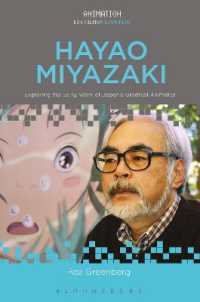Full Description
This book explores contemporary debates surrounding Poland's 'war children', that is the young victims, participants and survivors of the Second World War. It focuses on the period after 2001, which saw the emergence of the two main political parties that were to dictate the tone of the politics of memory for more than a decade. The book shows that 2001 marked a caesura in Poland's post-Communist history, as this was when the past took center stage in Polish political life. It argues that during this period a distinct culture of commemoration emerged in Poland - one that was not only governed by what the electorate wanted to hear and see, but also fueled by emotions.
Contents
1. The Three Concepts: Childhood, Emotions, Memory.- 2. Children in World War II: Poland and Beyond.- 3. Pensive Sadness: The Forgotten Children's Camp in Litzmannstadt/Łódź.- 4. Moral Panic: The Child Soldiers of the Warsaw Uprising.- 5. Morbid Pleasure: Children in Death Camps.- 6. Jingoistic Rage: The Kindertransport Memorial in Gdańsk.- 7. Afterword: From Commemorative Enthusiasm to Commemorative Fatigue.







